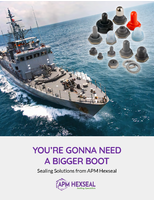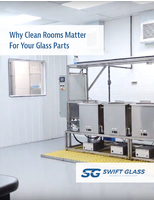International Panel Recognizes Ticona and Collaborators for Fortron® PPS-Based Structural Composite Seat Back
2011 JEC Thermoplastic Composite Innovation Award
Florence, Ky., Kelsterbach, Germany, Shanghai, P.R. China, Feb. 15, 2011 - Ticona Engineering Polymers today announced that for the second consecutive year, a collaborative effort involving its material and composite technical expertise will be recognized with a prestigious JEC Composites innovation award. It recognizes a commercially available aircraft application that uses Fortron® polyphenylene sulfide (PPS) in a structural aerospace composite assembly.
The 2011 JEC Thermoplastic Composite Innovation Award will be awarded to Cutting Dynamics Inc. (CDi), along with Ticona, TenCate Advanced Composites and A&P Technology (A&P), which teamed up to develop a thermoplastic modular composite seat back assembly used in passenger seat assemblies on lighter, more fuel-efficient aircraft. The award will be presented during the 2011 JEC Awards ceremony at 5 p.m. Tuesday, March 29, during the JEC Show in Paris. JEC attendees can inspect the award-winning composite seat back that will showcased by A&P at Stand N58, and the composite prepregs that will be on display by TenCate at booth R46.
Last year, another co-operative effort between Gulfstream Aerospace Corporation, Fokker Aerostructures, KVE, TenCate and Ticona was recognized with a 2010 JEC Innovation Award in the Aeronautics category for the development of the first welded thermoplastic composite aircraft primary structure on the Gulfstream G650.
The 2011 JEC award-winning modular composite seat assembly from CDi consists of a match molded seat back and seat frame that relies on a Fortron PPS/carbon fiber uni-directional prepreg tape. This prepeg tape is braided into a preform and shaped into a complex tube using a process that is capable of achieving high volumes unique in the aerospace industry.
This innovative process is based on a Fortron PPS thermoplastic matrix from Ticona, TenCate's Cetex® brand of composite prepreg and A&P's braided preform material, which was critical to the successful production of good parts. Engineers at A&P designed a braided preform that exactly meets the geometry and mechanical requirements of the seat frame.
The composite seat frames can deliver a 30 percent weight savings vs. conventional aluminum frames. Its development involved the supply team of Ticona as the supplier of the engineered thermoplastic resin, TenCate, Morgan Hill, Calif., as the manufacturer of the thermoplastic unidirectional tape, A&P, Cincinnati, Ohio, as the preform braider, and CDi, Avon, Ohio, as the fabricator. This collaboration allowed CDi to reduce process cost, increase process volume, and improve both product aesthetics and overall quality.
"The inherently flame resistant Fortron PPS-based composite seat back meets or exceeds all of the FST [flame/smoke/toxicity] requirements, heat generation limitations, and torsional load performance standards for aircraft interiors and also offers recyclability at the end of the seat life cycle," said Michael R. Favaloro, Ticona Technical Marketing - Fortron PPS. "In addition, the assembly's much lower weight also means substantial fuel cost savings for airlines, and the ease of processing results in a lower part cost."
Conventional airline seats and seat back frames formed from metals such as aluminum are relatively simple to manufacture in volume, but they add substantial weight to an aircraft, thereby reducing fuel efficiency. An alternative, thermoset composites, offers limited stiffness properties compared to aluminum, and has difficulty meeting necessary safety standards. In addition, thermoset manufacturing methods add facility and equipment costs to achieve high production rates.
"We recognized the future is in composites, but for this material to be correctly used in airplane seats, the composite structure as well as the design and configuration of the composite parts of the seat back assembly had to be combined in a way that takes advantage of their physical properties," said CDi Chief Executive Officer Bill Carson, who founded the company in 1985 and established a thermoplastic composite seat production center. CDi annually delivers more than 100,000 aluminum seat backs to the aircraft interior industry.
"It became clear that Fortron PPS was the material of choice because it can be easily manufactured into tape with carbon, glass and other reinforcements, it offers processing and eco-friendly advantages, and it can use a rapid manufacturing process to produce stronger and lighter seats that can meet airline cost targets, which gives us the opportunity to manufacture the parts here in the United States," Carson added.
Thermoset composite seat assemblies must go through a costly and labor-intensive hand-laid and autoclaved process. In contrast, the Fortron-based thermoplastic composite uses a low-cost, unidirectional tape that is slit in nominal widths and braided to create high quality preform blanks, which can be readily molded and consolidated into unique final shapes in a matter of minutes.
"The Fortron PPS/carbon prepreg and automated process development work that CDi, Ticona, TenCate and A&P put into this innovation has led to increased production cycles, making the thermoplastic composite aircraft seat backs cost-competitive and ensuring that CDi can meet its customers' schedules," Carson said.
Fortron PPS-based thermoplastic tape enables the fabric preforms to meet all of CDi's needs - an outstanding range of properties, low preform cost and rapid ease of final manufacture.
"It is an ideal thermoplastic for use with rapid manufacturing processing where parts need to be molded in a few minutes instead of the lengthier times required with a thermoset," Favaloro said. "It also is recyclable, requires much less energy to process and contains no volatile organic compounds, unlike thermosets."
Fortron PPS is a semi-crystalline polymer with key features:
o Exceptional high temperature performance to temperatures up to 240 degrees Celsius (464 degrees Fahrenheit)
o Outstanding resistance to aircraft and automotive fuels, oils, solvents and anti-icing agents, and extremely low moisture absorption
o Excellent hardness, stiffness and dimensional stability
o Inherently flame-resistant - meets FST and heat generation specifications for aircraft interior applications
Thermoplastic-based composites today are enabling the development of new, advanced lightweight components that are lower in cost than thermoset composites.
"Fortron PPS is a proven material of choice in critical aerospace structures," said Ticona's Favaloro. "We see new, expanding opportunities for Fortron PPS in a transportation market that needs to find ways to reduce cost and weight - without sacrificing strength and stability - in applications involving structures, frames, stiffeners, panels, cable harnesses, clips and brackets."
JEC is the largest composites exhibition and technical conference in the world. Each year, a jury of renowned international experts chooses the best composite innovations, based on their technical interest, market potential, partnership, financial impact and originality. This year stands out for the increase in the number of applications - 63 applications and 45 finalists - and worldwide participation - 20 different countries in Europe, North and South America, and the Asia-Pacific region.
Links to the JEC Innovation Award & Contributors:
o JEC Composites - jeccomposites.com/innovation/
o Ticona Engineering Polymers - www.ticona.com/composites
o Cutting Dynamics Inc. - www.cuttingdynamics.com
o TenCate Advanced Composites - www.tencateadvancedcomposites.com
o A&P Technology - www.braider.com
About Ticona and Celanese
Ticona, the engineering polymers business of Celanese Corporation, produces and markets a broad range of high performance products, and posted net sales of $808 million in fiscal 2009. Ticona employs more than 1,450 individuals at production, compounding and research facilities in the USA, Germany, Brazil and China. For more information, please visit www.ticona.com or www.ticona.cn (Chinese language).
Celanese Corporation is a global technology leader in the production of specialty materials and chemical products which are used in most major industries and consumer applications. Our products, essential to everyday living, are manufactured in North America, Europe and Asia. Known for operational excellence, sustainability and premier safety performance, Celanese delivers value to customers around the globe with best-in-class technologies. Based in Dallas, Texas, the company employs approximately 7,250 employees worldwide and had 2010 net sales of $5.9 billion, with approximately 72% generated outside of North America. For more information about Celanese Corporation and its global product offerings, visit www.celanese.com.
Contacts:
Americas:
David Perilstein,
Press Relations
+1-518-479-7632
Dperilst@nycap.rr.com
Americas:
Robert Shaw, Manager,
B2B Marketing Communications
+1-859-372-3117
Robert.Shaw@Ticona.com
Europe:
Henning Küll,
Public Relations Manager
+49-6107-772-1797
Henning.Kuell@Ticona.de
Asia:
Amber Zhao,
Marketing Communications
+86-21-3861-9222
tong.zhao@ticona.com




